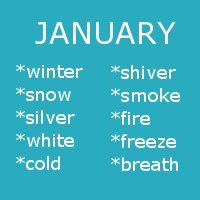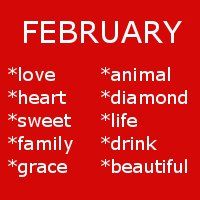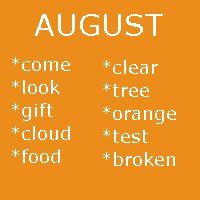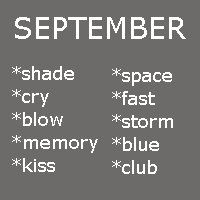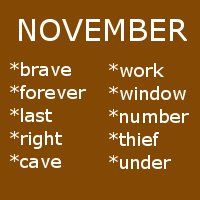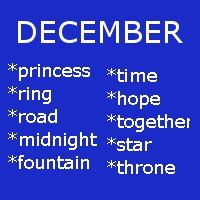I'm continuing to explore German science fiction for
German Literature Month, and what is better for this than a good short story collection? Unfortunately, I have been experiencing a lot of problems with writing about it, as English-speaking world seems to be utterly uninterested in this kind of literature (only one author in English Wikipedia? Really?) Fortunately, I know German, at least enough to successfully google in it. So the names of the stories and the authors' names are correct, and if you are interested, you can try to search for translations using them.
I read the stories in Russian. The collection is called "Parallels", and it is part of the science fiction series of books issued in Soviet Union between 1965 and 1976. I've written a bit about each story, and you can decide for yourselves if you want to explore some of the mentioned authors.
Die Experimente des
Professors von Pulex by Herbert Ziergiebel
I didn't like this one. It is about a mad professor, breeding huge insects for Nazi army after the war is already finished. Not really my cup of tea. But is you like really creepy stuff, that's for you!
Trinicia by Gunter Metzner
Two explorers find a skeleton of a huge carnivorous plant on a far away planet. What killed the thing? And what will they read in the notebook found in the capsule inside it? The story is very simple, but it is very psychologically true.
Urlaub auf aldebaranisch (Vacation, Aldebaran style) by Michael Szameit
A somewhat funny story about an unfortunate traveller, who is having some problems with teleportation. I especially liked the description of the aldebaranians. Certainly reminding me of some places I've travelled =)
Kunstfehler in Harmonopolis by Günter Braun, Johanna Braun
No crime has happened for some 200 years in the town (and in the world), but then someone begins to rob shops night after night. What should people do? Certainly not close their doors or have a night watch! It would be so offensive to suspect anybody! Then a mad collector of an old forgotten mystery genre is summoned to deal with the robber. I've enjoyed every moment of this story, and I totally recommend it to everyone!
Die Ignoranten by Reinhard Heinrich, Erik Simon
What do mineral life forms from other planets think about our planet? An interesting viewpoint, really. Absurdity of the situation is even funny, but it made me think too.
Insel der Angst by Günther Krupkat
Nothing really new here. Robots with artificial intelligence are not listening to the mad professor who has build them and want to live as they want, and they usually want to build more robots.
W by Erik Simon
A very short short story about the probability of improbable. Real fun!
Die Spinne by Erik Simon
The existence of parallel worlds if revealed with the help of... a spider. But a spider running along an non-existing wall. Or should we believe the author at all? I liked the description of the main character's flow of thoughts, and the idea is interesting in itself.
Der Schritt aus dem Jenseits by Frank Rychlik
This one is just perfect! After the accident the main character has some strange memory issues... and I'll never tell you what is the matter in the reality, because it's too good. Just read it!
Imago by Wolf Weitbrecht
The story is written by the main character as a plea of not guilty (or whatever is the proper judicial term) when he is under jail for killing his colleague's son. But of source, this colleague is an old mad professor, and his son is really a "new evolution step for a mankind". Or so this professor claims.
Nichts als Arger mit dem Personal by Siegbert Günzel
What are you to do when your wife buys a new robot-housekeeper, who is the exact copy of a famous singer, and who sings even better than the original? Buy a famous actress for yourself, of course. New level of arguing in a family of the future. Liked it!
Begegnung im Licht by Gunter Metzner
Two spaceships of two different civilizations, who had no idea of the existence of each other, meet for a short time in the outer space. And fly further.
Nebel by Jörg Gernreich
Didn't understand anything in this story. Read again. Again didn't understand anything. Maybe it's not me?
Ende einer Karriere by Günter Teske
It's a book about sport. And cheating in it. But with new, horrible methods. Reading about all this was a bit nauseous, but the idea is very true: the sport has no value in it when there is cheating.
Der Haltepunkt by Rolf Krohn
Science fiction + classic mystery? Yes please! There is a stop on an old railway, where everybody sees a murder when passing for the first time. And the main character wants to know, what happened here long ago. The setting is so traditionally-cozy, that the answer is even more unexpected.
Bazillus phantastikus oder Die Nixe mit dem Hackebeil by Günther Krupkat
How does a romantic become a married fatty philistine in the distant future? The same way as now. A sad story, but very truthful.
Der astronomische Dieb by Gerhard Branstner
We all think science fiction is sad and philosophical. But try these short anecdotes about the adventures of two resourceful friends in the outer space! A very nice change, and I really liked it.
Parallelen by Alfred Leman, Hans Taubert
A contact between two very different civilizations is described from the two different point of views. And they are so different themselves, that the actions of ones are completely inexplicable for the others. Interesting idea!
I enjoyed the book very much, and I hope it'll encourage some of you to explore German science fiction (which I never thought even existed before this month :) ), as it is really diverse and engaging!






































